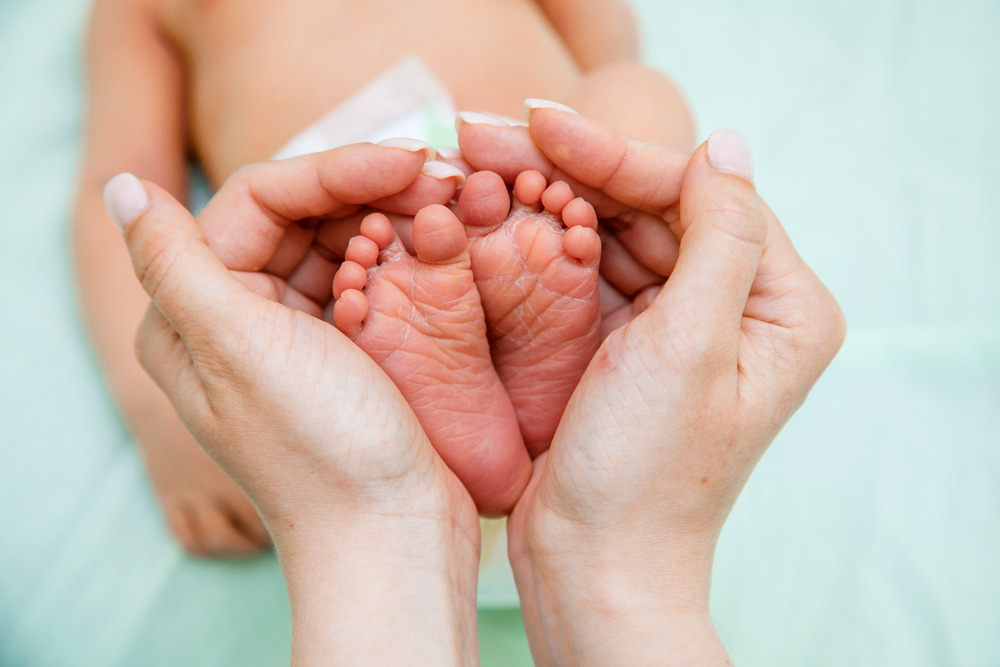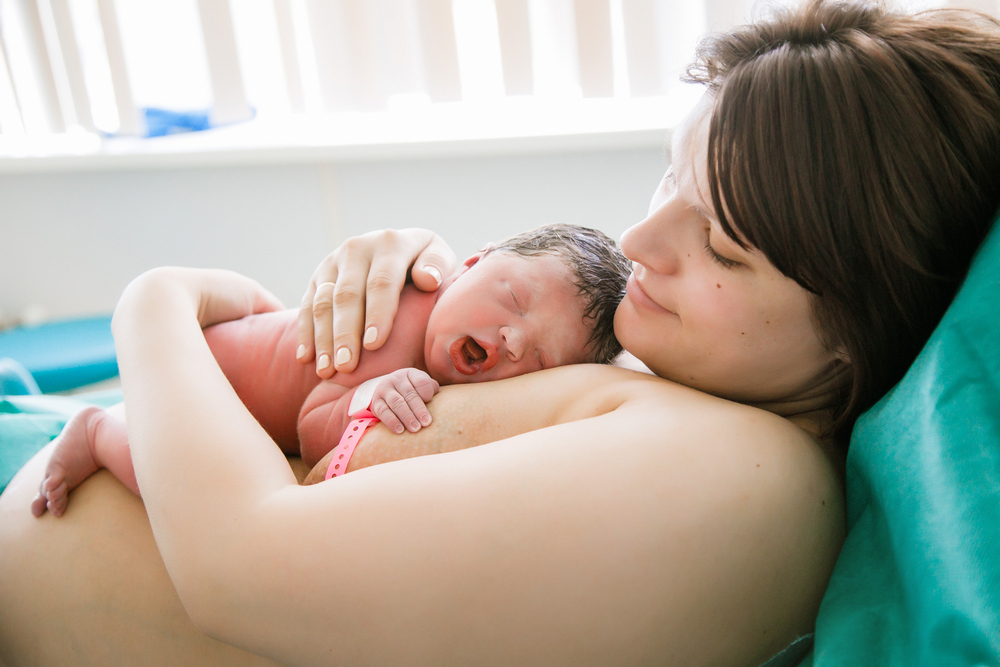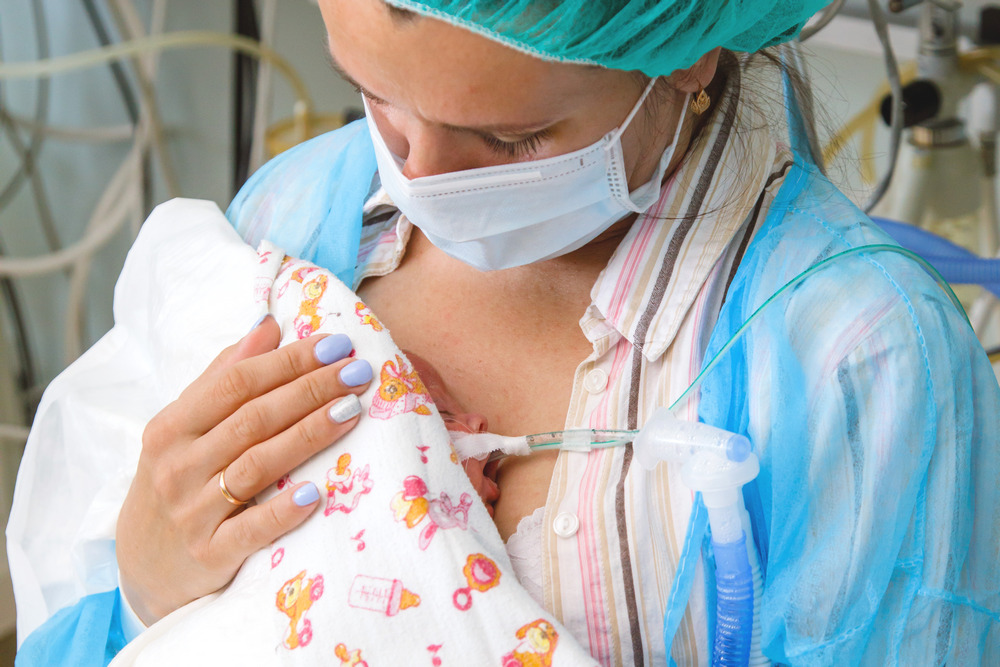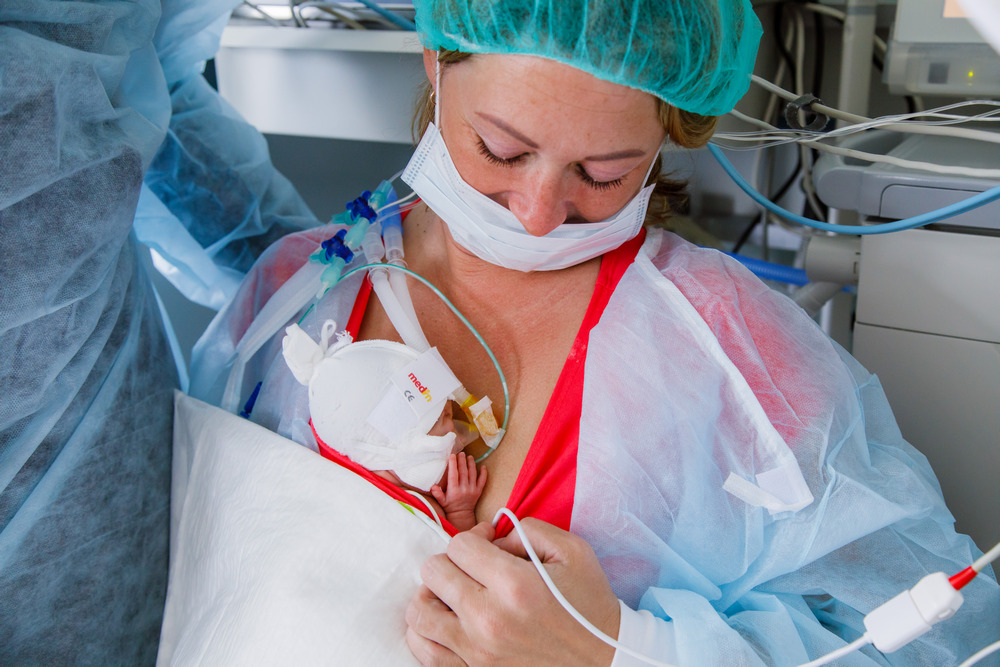
The Baby-friendly Hospital Initiative (BFHI) was launched by WHO and UNICEF in 1992. The programme includes ten steps to successful breastfeeding, 24-hour rooming in of mother and child, father's involvement in care of both full-term healthy babies and babies born preterm or with developmental disabilities.
In a normal delivery at term, even before cord pulsation disappears, the newborn is placed on the mother’s abdomen and covered with a sterile drape. After the pulsation stops, the umbilical cord is cut and the baby is carried away to a warm table to be examined by a neonatologist, and the midwife provides a primary neonatal care. Then the baby is put back to the mother’s upper abdomen and the midwife assists the mother to encourage her baby to the breast. After feeding the baby, the mother gets some rest. At this time, the father may be in contact with the child. It is important that during this period of increased susceptibility, which lasts 1-2 hours after birth, when the baby is not sleeping, one of the parents would be there. All this time the family is in the delivery room, and then the mother and child are transferred to the postnatal ward.

If the baby is delivered by C-section at term, the umbilical cord is cut 30 seconds after delivery. Then the neonatologist examines the baby on a warm table and the primary neonatal care is performed. Then the baby is laid naked on the mother’s chest, covered with a sterile drape and put to breast. After 30 minutes, the baby is given to the father, and, if he wishes so, in a specially equipped “father’s room” the baby can be laid naked on the dad’s chest for skin-to-skin contact. After the surgery is complete, the mother can be transferred to the “father’s room” for joint family involvement.

For premature babies or babies with developmental challenges the same approaches are used as for healthy full-term babies, once they are stable: delayed umbilical cord clamping, placing on the mother’s / father’s abdomen, assisted breastfeeding (tube feeding with colostrum and breast milk if not able to suck), active involvement of parents in the care of a special child.
Specialists of the Perinatal Centre follow the basic principles of developmental care. It involves creating an environment that is as close as possible to intrauterine one – high humidity, heat, an embryo position. Environmental stress factors such as noise, light, vibrations are minimized.

Much focus is on bringing the family closer to the treatment and nursing of a premature baby. During this period, it is important to surround the child with love and care, create conditions for the maximum psycho-emotional comfort in the family, reduce the risk of infection and facilitate the formation of a normal, so-called «family» microflora. During the nursing period, special toys and techniques are used that promote the intellectual and psycho-emotional development of babies.
